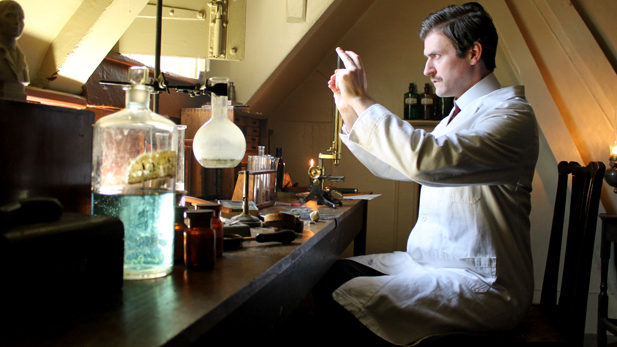 In a recreated scene, conducting tests in a lab.
In a recreated scene, conducting tests in a lab.PBS
The fictional Sherlock Holmes was a scientist who used chemistry, bloodstains and minute traces of evidence to catch criminals. In an era when eyewitness reports and “smoking gun” evidence were needed to convict criminals, Sherlock Holmes’ crime-scene methods were revolutionary. Forensic scientists, crime historians and Sherlockian experts reveal for the first time the astonishing impact Arthur Conan Doyle’s creation had on the development of real-life criminal investigation and forensic techniques. With a mix of interviews, dramatic reconstruction and archives, the program tells the story of the impact and legacy of the most famous crime fighter in history.
How Sherlock Changed the World, Tuesday at 9 p.m. on PBS 6.

 In a recreated scene, conducting tests in a lab.
In a recreated scene, conducting tests in a lab. In a recreated scene, conducting tests in a lab.
In a recreated scene, conducting tests in a lab.
By submitting your comments, you hereby give AZPM the right to post your comments and potentially use them in any other form of media operated by this institution.